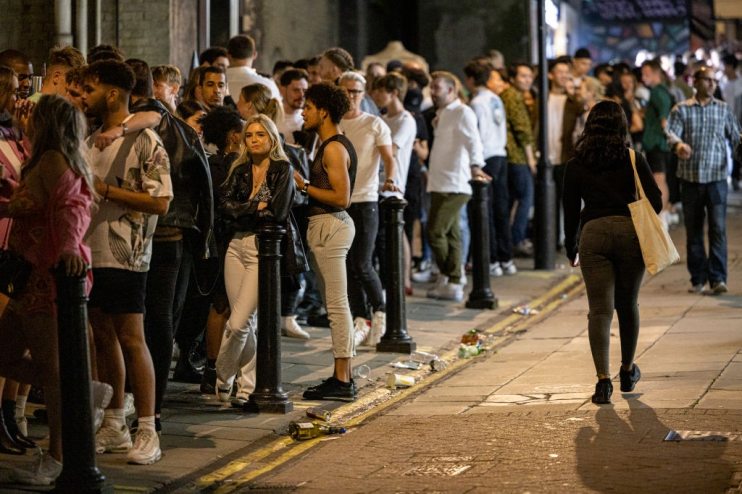Bouncers push back on government over alleged uptick in qualified staff amid spiking concerns

Bouncers have criticised government’s claims there are more nightclub security staff than pre-pandemic amid concerns about spiking on nights out.
The committee had recommended a support package for venues to “boost security measures including the recruitment and training of additional door security staff, particularly female staff.”
In its response to the Home Affairs’ committee published on Monday, the government cited stats from the Security Industry Authority that claimed there had been an increase in qualified door staff.
There were some 298k licence holders in 2022, versus 248k in 2019, the figures claimed.
The number of female licence holders had also increased from 25k to just over 30k.
“We will continue to engage across government and with industry to consider what a support package might look like and will reflect this engagement in the statutory report on spiking due to be published April 2023,” the government’s response added.
However, the UK Door Security Association (UKDSA) said the data did not show the number of inactive licences or how many people had left the country.
“We will only be able to tackle the problem, when we accept that we have a problem,” a spokesperson added.
“With the licensed system set up as it stands, many licence applicants apply for Door Security licences to work within the static guarding sector, and never set foot on a door or within licensed premises as a member of security, further skewing the figures highlighted within these reported figures,” they explained.
Women had raised concerns over reports of injections via needle in night clubs last year, in addition to fears over drinks being spiked.
Night time bosses have previously warned customers were being put at risk by security shortages and a “tragedy” was on the horizon without further intervention.
Earlier this year, a survey from the NTIA and UKDSA found three quarters of businesses said a security staff crunch was impinging on their ability to keep customers safe.
Even more firms (77 per cent) believed the dire situation was set to get worse, with veteran bouncers lured into other roles such as festivals over the summer.
““We are simply running out of time: the sector has been raising the alarm about security resource concerns for the last few years and we are only now slowly starting to engage with the government on this crisis,” NTIA boss Michael Kill said at the time.
Ministers would also look at opportunities for anti-spiking communications campaigns, the government’s response stated.
Recommendations had included marketing that sent “a clear message that there is no acceptable defence for spiking” and highlighted it was a crime punishable by up to 10 years in prison.
The committee also recommended communication efforts that “encourage victims and venues to report incidents to the police, with the promise that all reports will be investigated.”
In response, the government said it was particularly looking at communications opportunities around ‘fresher’s week’ in September.
This was reflective of “the fact that reports of needle spiking peaked around the same period in 2021, coinciding with the university year starting,” the government said.
UKHospitality boss Kate Nicholls, welcomed the response and added: “We support a national data-led strategy that includes a support package for venues, particularly those in the night-time industry, to help boost security training of staff.”
Fewer than two per cent of spiking cases reported to the police resulted in a charge over an almost-five year period, The Independent reported in March.